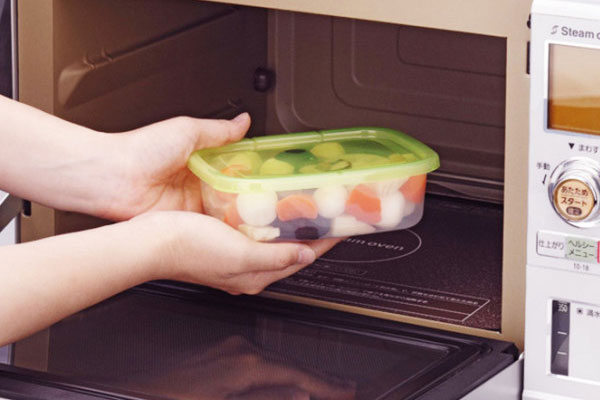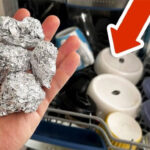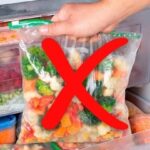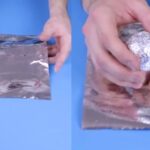Metal Objects
It is highly unsafe to use metal utensils or containers in the microwave. Always keep them away from the microwave when it’s in use. Microwaves cannot penetrate metal and will be reflected back, causing damage to the oven and potential harm to those nearby due to burns or explosions.
Vacuum Flasks
Vacuum flasks, typically made of stainless steel, can block the microwaves from heating the contents inside. This may also lead to damage to your oven. If your flask is made of plastic, ensure that it is microwave-safe before use.
Aluminum Foil
Avoid using aluminum foil to wrap food items for cooking in the microwave. Microwaves cannot penetrate the foil, and sparks may occur, leading to a potential fire hazard.
Plastic Bags
During defrosting or cooking, avoid direct contact between plastic bags and food items. Instead, place the food in a bowl and then cover it with a plastic bag or a glass/ceramic lid. This ensures even heating and moisture retention. Before removing the food, puncture the plastic bag to prevent it from sticking to the meal.
Eggs with Shells, Fruits, and Canned Foods
Eggs with shells, fruits, canned foods, peppercorns, etc., should not be microwaved. These items can degrade in quality or, in the case of eggs, explode. Thick-skinned produce like potatoes, apples, squash, or chestnuts must be peeled before microwaving.
Plastic Containers and Utensils

It is common knowledge that placing hot food in plastic containers is harmful to health. Similarly, using plastic utensils or containers in the microwave can have the same consequences and may even be more severe. Only use plastics that are specifically labeled “microwave-safe.”
Source: Gia đình & Xã hội
































![How to Change Garena Avatar on Phone and PC [Latest Guide]](https://meo.tips/wp-content/uploads/2024/04/123-100x70.webp)




